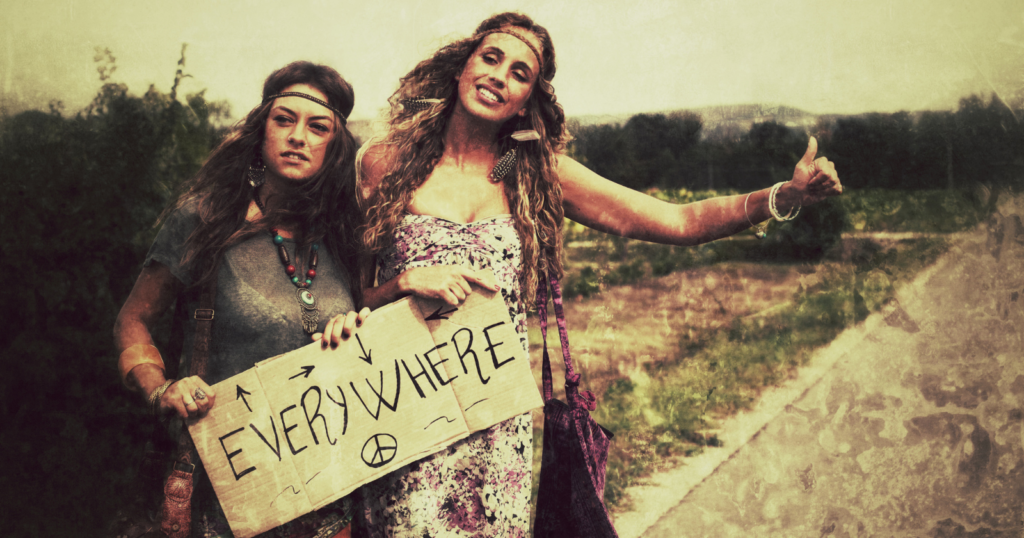There’s something magical about the way we used to live, isn’t there?
Back in the ’60s and ’70s, life moved at a different pace.
We learned lessons not from screens or carefully curated social media feeds, but from the raw, unfiltered experiences of childhood.
I was just a kid then, running around neighborhoods where everyone knew your name (and would absolutely tell your parents if you misbehaved).
We had scraped knees, hurt feelings, and real consequences.
But you know what?
We also developed something that seems increasingly rare today: genuine resilience.
As I’ve gotten older and watched my grandchildren navigate their world, I can’t help but notice how different things are now.
Sure, technology has brought incredible advances, but somewhere along the way, we’ve lost touch with some fundamental life lessons that shaped entire generations.
The kids who grew up in those decades learned to be resourceful, independent, and emotionally tough in ways that many young people today simply haven’t had the chance to develop.
So what exactly did we learn back then that’s worth remembering?
1. You had to entertain yourself
Remember those long summer afternoons when “I’m bored” was met with a shrug and “Go find something to do”?
There was no Netflix queue or endless scroll of TikTok videos to fall back on. If you wanted entertainment, you created it yourself.
We built forts out of couch cushions, turned cardboard boxes into spaceships, and invented elaborate games with nothing more than our imagination.
This wasn’t just play—it was training.
We learned to be resourceful, creative, and comfortable with our own company.
Boredom became a springboard for innovation rather than a problem that needed immediate solving by someone else.
Today’s kids rarely experience that kind of creative vacuum.
Every moment can be filled with digital stimulation, robbing them of the chance to discover what their minds can conjure up when left to their own devices.
2. Failure wasn’t cushioned with participation trophies
Back then, if you came in last place, you came in last place. Period.
There was no trophy waiting for you at the finish line just for showing up.
If your team lost the game, you went home disappointed—and that was okay.
We learned early that not everyone wins, not everyone gets picked first, and sometimes your best effort still isn’t enough.
Sounds harsh?
Maybe by today’s standards.
But here’s what it taught us: failure wasn’t the end of the world. It was just information.
When I struck out in Little League or didn’t make the school play, I had to sit with that disappointment and figure out what to do next.
Did I want to practice harder?
Try something different?
Or maybe accept that baseball wasn’t my thing?
Those unvarnished moments of defeat built something valuable—the ability to bounce back without needing external validation to feel worthy.
We learned that our value as people wasn’t tied to always succeeding.
3. Adults weren’t your friends—they were your guides
There was a clear line between kids and grown-ups back then, and nobody pretended otherwise.
Your parents weren’t trying to be your best friend or worried about whether you “liked” their decisions.
Teachers didn’t ask for your opinion on classroom rules.
Adults made the calls, set the boundaries, and expected you to respect them—not because they were mean, but because that’s how the world worked.
This wasn’t about being authoritarian or dismissive.
It was about understanding hierarchy and recognizing that some people had more experience and wisdom than you did.
When my neighbor Mr. Henderson told us to stay off his lawn, we stayed off his lawn.
When the school principal called your parents, you knew you were in real trouble.
There was security in knowing where you stood and who was in charge.
Today’s blurred lines between parent and friend, teacher and peer, can leave kids feeling unmoored.
Sometimes what looks like respect for children’s autonomy actually robs them of the comfort that comes from clear, consistent adult leadership.
4. You learned to wait for things you wanted
Instant gratification wasn’t even a concept we understood because instant anything barely existed.
If you wanted to hear your favorite song, you had to wait for it to come on the radio—and when it did, you’d scramble to hit record on your cassette player, hoping the DJ wouldn’t talk over the ending.
Want to see a movie?
You either caught it at the theater or waited months for it to show up on TV.
Christmas and birthdays weren’t just gift-getting occasions—they were lessons in delayed gratification that stretched for months.
You’d circle items in the Sears catalog and then wait, wonder, and hope.
This wasn’t torture; it was character building.
We developed patience, learned to savor anticipation, and discovered that wanting something made getting it that much sweeter.
When everything took time—from developing film to making popcorn on the stove—we learned that good things were worth waiting for.
That anticipation itself could be pleasurable, not just an obstacle to endure.
5. You figured things out without googling the answer
When you didn’t know something, you had to work for the answer.
If we were arguing about who won the 1967 World Series, we couldn’t just pull out our phones and settle it in seconds.
You either went to the library, asked someone who might know, or—and this was revolutionary—lived with not knowing for a while.
This created a different relationship with knowledge. We became comfortable with uncertainty and developed research skills that went beyond typing into a search bar.
More importantly, we learned to think through problems ourselves before seeking outside help.
Building a model airplane?
You read the instructions carefully, studied the diagrams, and figured it out step by step.
Bike chain fell off?
You crouched down and worked with your hands until you understood how the gears connected.
There was pride in solving things independently.
We developed confidence in our ability to figure stuff out, even when we didn’t have all the information upfront.
That self-reliance became a cornerstone of how we approached challenges throughout life.
6. Your mistakes had real consequences
Nobody was calling your teacher to argue about your grade or swooping in to fix your problems.
If you forgot your homework, you got a zero.
If you were rude to the neighbor, your parents made you march over and apologize face-to-face.
Break something at a friend’s house?
You worked odd jobs until you’d earned enough to replace it.
These weren’t cruel punishments—they were life lessons wrapped in accountability.
We learned that our actions had ripple effects and that we were responsible for cleaning up our own messes.
I remember accidentally breaking Mrs. Johnson’s garden gnome with my baseball.
My dad didn’t make excuses or offer to pay for it himself. Instead, he walked me to her door, stood behind me while I explained what happened, and then helped me figure out how to earn the money for a replacement.
That gnome cost me three weeks of allowance, but it taught me something invaluable: own your mistakes, make them right, and people will respect you for it.
7. You developed thick skin through real social interaction
Playground politics were brutal, but they were also educational.
Kids could be mean—really mean—and there wasn’t always an adult nearby to mediate or teach everyone about hurt feelings.
You learned to stand up for yourself, brush off insults, and navigate complex social dynamics without a referee.
If someone called you names, you either ignored it, shot back with something clever, or walked away.
But you dealt with it in the moment, face-to-face, without screenshots or parents getting involved in group chats.
This wasn’t Lord of the Flies chaos.
Most of us figured out how to get along, make friends, and resolve conflicts because we had to.
We developed emotional resilience and social skills through trial and error.
Sure, some interactions were hurtful, but we learned that words couldn’t actually break us.
We discovered our own strength and developed the confidence that comes from handling difficult people and situations on our own terms.
8. Independence was expected, not feared
By age eight or nine, most of us were walking to school alone, riding our bikes across town, and spending entire days outside without checking in every hour.
This wasn’t neglect—it was training for real life.
Our parents understood that independence was a skill that needed practice, and childhood was the safest time to develop it.
We learned to navigate our neighborhoods, handle small emergencies, and make decisions without constant adult supervision.
Got caught in the rain?
Figure out where to take shelter. Friend’s mom couldn’t drive you home?
Start walking and figure out the route.
These experiences taught us that we were capable of more than we realized.
We developed street smarts, problem-solving abilities, and confidence in our own judgment.
The world felt bigger then because we were actually allowed to explore it.
That exploration—with all its minor risks and occasional mishaps—built the foundation for a lifetime of self-reliance and adventure.
Maybe it’s time we stopped treating these old-school approaches like relics of a bygone era and started recognizing them for what they really were: practical wisdom that helped shape capable, confident human beings.
So here’s my question for you: which of these lessons resonates most with your own childhood, and how might we bring some of that wisdom back into today’s world?







